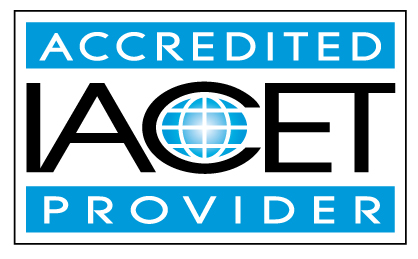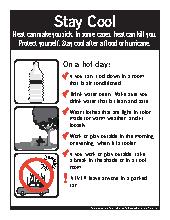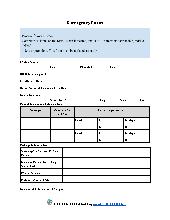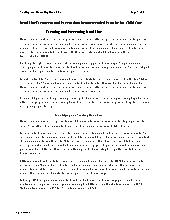CDA Bridge Bundle: Preschool - $300
The 30-hour Bridge Bundle for Maryland Child Care Providers is a specialized training program designed to help child care professionals in Maryland who already hold a 90-hour certification complete the additional training required to obtain the Child Development Associate's (CDA) Credential. This program is particularly valuable for individuals who have completed the 45-hour Growth and Development training and the 45-hour Preschool Curriculum training and are now looking to advance their careers and increase their earning potential in the field of early childhood education.
Here are the key components and details of the 30-hour Bridge Bundle:
- Target Audience: Maryland child care providers who already possess a 90-hour certification with completion of the 45-hour Growth and Development and 45-hour Preschool Curriculum training.
- Purpose: The primary purpose of this training program is to provide the remaining 30 hours of required training needed to meet the prerequisites for obtaining the Child Development Associate (CDA) Credential.
- CDA Credential: The Child Development Associate (CDA) Credential is widely recognized in the field of early childhood education and serves as a valuable qualification for professionals seeking career advancement. It demonstrates a commitment to high-quality care and education for young children.
- Course Content: The 30-hour Bridge Bundle covers essential topics related to early childhood education and development, including:
- Understanding developmental milestones of young children.
- Designing and implementing effective learning experiences that encompass social, emotional, cognitive, and physical development.
- Accommodating children with special needs.
- Nurturing a professional attitude and approach in the childcare setting.
- Online Format: The course is offered online, allowing participants to access the training materials and complete the program at their own pace, within a specified timeframe.
- Interactive Instructor Support: Learners receive support and guidance from instructors throughout the course, ensuring that they can effectively grasp and apply the concepts presented.
- Portfolio Review: Included in the training is a portfolio review, which is a critical component of the CDA Credentialing process. A well-prepared portfolio showcases a candidate's competence and experience in working with young children.
- Resources and Handouts: Participants have access to over 100 resources and handouts that supplement the training content, helping them better understand and apply what they've learned.
- Career Advancement: Completing the CDA Credential for Preschool teachers opens up new career opportunities and can lead to increased earning potential in the early childhood education field. It signifies a commitment to excellence in providing care and education to young children.
By the end of this training, the learner will be able to:
- Describe the importance of providing opportunities for children to practice independence.
- Recognize the importance of the use of developmental screenings.
- Demonstrate understanding of inclusionary practices for anxiety in the child care setting.
- Describe the components of the ASQ.
- Give examples of what educators can submit as samples for children’s portfolios.
- Define Developmentally Appropriate Practice
- Describe the primary learning centers and their components.
- Identify theorists of guidance and discipline
- Give examples of strategies teachers can use to communicate with parents regarding challenging behaviors.
- Define and identify common signs and behaviors of children and youth with depression.
- Demonstrate understanding of inclusionary practices for depression in the childcare setting.
- Identify Jean Piaget's stages of cognitive development.
- Demonstrate an understanding of how environment and equipment modifications support individual needs.
- Identify theory and theorist in relation to child development.
- Identify the differences in major theories.
- Define and identify common signs and behaviors of children and youth with developmental disabilities.
- Define and identify common signs and behaviors of children and youth with ADHD.
- Identify the components of a lesson plan for all abilities.
- List community resources, supports, and referrals for ADHD.
- Demonstrate understanding of inclusionary practices for ADHD in the child care setting.
- Demonstrate understanding of inclusionary practices for cerebral palsy in the child care setting.
- Demonstrate understanding of inclusionary practices for developmental disabilities in the childcare setting.
- Identify factors that influence learning.
- List community resources, support, and referrals for developmental disabilities.
- Identify similarities between major theories.
- List community resources, supports, and referrals for cerebral palsy.
- Demonstrate an understanding of prenatal development and its impact on child development.
- Define and identify common signs and behaviors of children and youth with hearing loss.
- Demonstrate understanding of inclusionary practices for autism spectrum disorder in the child care setting.
- Demonstrate an understanding of how the community in which a child lives influences development
- Demonstrate how theory is reflective in the child care environment for infants and toddlers.
- Identify the basic musical milestones in children aged from birth to 5 years.
- Describe the importance of social emotional skill development in children entering kindergarten.
- Define and identify common signs and behaviors of children and youth with conduct disorder.
- Demonstrate an understanding of how to support all children and youth at times of change, transition, or separation.
- Demonstrate understanding of inclusionary practices for hearing loss in the childcare setting.
- Recognize the impact of unexpected changes on children and youth.
- Demonstrate understanding of inclusionary practices for conduct disorder in the child care setting.
- List community resources, supports, and referrals for conduct disorder.
- Illustrate ways to apply the essentials of using supportive social learning to handle behavior issues.
- Identify criteria that should be considered when choosing appropriate transition activities.
- Demonstrate an understanding of how learning experiences develop emerging skills
- Demonstrate an understanding of inclusionary practices.
- Recognize that children develop independence at different stages.
- Define and identify common signs and behaviors of children and youth with Autism Spectrum Disorder.
- List community resources, supports, and referrals for autism spectrum disorder.
- Define and identify common signs and behaviors of children and youth with anxiety.
- Define and identify common signs and behaviors of children and youth with cerebral palsy.
- Demonstrate an understanding of emergent curriculum.
- List community resources, supports, and referrals for depression.
- Demonstrate understanding of the importance of parent/caregiver relationship
- Identify assessment tools.
- List strategies to collaborate with specialists to administer developmental screenings.
- Demonstrate an understanding of the ADA.
- List community resources, supports, and referrals for anxiety.
- Demonstrate an understanding of the benefits of individualized learning
- Identify the different types of portfolios used in child care programs, and the appropriate portfolio components for each type.
- Demonstrate an understanding of observational techniques that result in accurate and objective observation
- Identify communication issues that are common in the early care and education environment
- Demonstrate understanding of effective listening skills in childcare.
- Criteria to earn CEUs:
- Certificates are awarded when the following criteria have been met by the learner:
- Class has been paid in full
- All material has been reviewed
- All review questions and final test have been completed with a passing score of 80% or higher.
- Learning Assessment Method:
- Learners will be assessed through questions after every section is completed. Learners will not be
allowed to proceed to the next section of the training until all questions have been answered correctly.
Learners will be presented with a final test composed of true/false and multiple choice questions.
Upon successful completion of the training, learners will receive their certificate by email.
- Learning Methodology:
- Online material will be presented in the form of slides,
accompanied with speech. Videos will be used to demonstrate ideas and concepts. Charts and tables
will be used for illustration.
- Logistics/Required Technology:
- A stable internet connection is required for the completion of this course. Users are highly encouraged to take their online course on Google Chrome on either a laptop or desktop computer. Speakers and/or headphones are also required to hear speech.
- Payment Policy:
- Payments need to be made in full. No refunds will be issued after starting the class.
- Proprietary or conflict of interest disclosure:
- Unless otherwise stated in the course description none of H & H subject matter experts and editor has any conflict or proprietary interests related to the material they prepared in this course.
- Support Services:
- Please visit our contact us page
You are purchasing a session of an online training that includes online assessments. Your certificate will be emailed to you once you pass the final exam with a passing grade of 80%.
Your certificate will bear the name you provided to us when you signed up. For support and questions regarding the material presented in this class please contact us at [email protected]. Please consult our frequently asked questions page for other questions or feel free to contact us.
No prerequisites are required for the completion of this course.
Hours breakdown
10.5 CD/13.5 SN/3 PRO/3 CURTopics / Categories
CurriculumProfessionalism
Special needs
Child development
Group Admin
Not Applicable
Preschool
Basic
Latest Jobs
- Infant Toddler CDA vs. Preschool CDA: Which One is Right for You?
- Preschool CDA Black Friday Deal for Georgia
- Join ChildCareEd's CDA Club: Your Path to CDA Certification Made Easier
- Bridging the Gap between the 90 hour and CDA Credential for Maryland providers
- Empowering Preschool Teachers with the CDA Portfolio Handbook
- “The CDA Chronicles: Adventures of a CDA in Training
- CDA Preschool Credential Free Resources
- Santa’s Certified Helpers: The Career Magic of a CDA Credential in Childcare
- A Toast to CDAs: Why 2025 is the Year to Invest in your CDA Certification
- From Workshop to Classroom: How a CDA Credential Shapes the Future of Early Childhood Educators
- Oklahoma providers: CDA assessment Scholarship
- Future Leaders in Education: Michigan CDA Training
- Online Home Visitor CDA Training with ChildCareEd
- CDA Home Visitor Training Options from ChildCareEd
- Lesson Planning for Preschoolers: A Guide for Educators
- Earn CDA Certification Online: Step-by-Step Guide
- Benefits of Preschool: Early Education Matters
- How CDA Council's Early Educators Leadership Conference is Shaping the Future of Early Childhood Education
- How to Create and Implement a Visual Schedule for Your Preschool Classroom
- Earning Your CDA Through ChildCareEd: A Path to Professional Excellence










